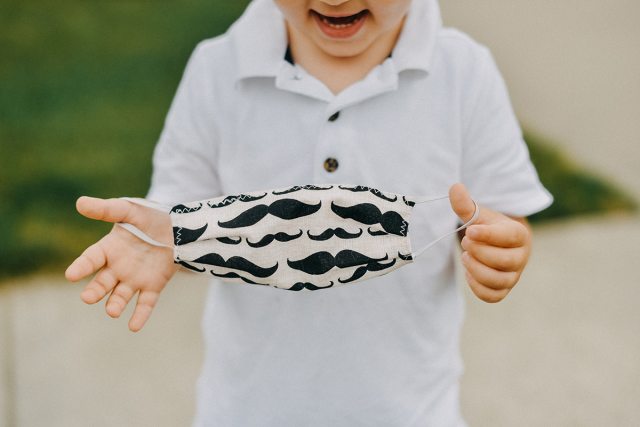Teaching kids to stay healthy
| Wellness | Healthy You

Children are creative. Tap into their playful energy to build good habits.
With school and sports back in session, kids are exposed to more germs than they may be used to over the past almost two years. Following are simple tips to help your little ones and entire family stay healthy during cold and flu season.
“Encouraging your kiddos to follow your example, helps build in accountability for yourself and lay the groundwork for their health in the future.” says Serena Black, MD, pediatrician at PeaceHealth Medical Group.
Exercise every day.
Kids naturally love to move. Take advantage of that. Go for a walk after dinner. Do a kitchen dance-off as you wash dishes.
Chores are also a chance to add some fun movement. Folding laundry? Put things away one at a time. If stairs are involved, the steps will quickly add up! Picking up toys? If they’re soft or small, play “HORSE” as you toss them in the basket from a few (or many) steps away.
Eat immune-boosting foods.
Adding foods that boost a kid’s immunity can go a long way in helping prevent sickness. Yogurt contains probiotics which keep the digestive system free from disease-causing germs.
Fruits like pomegranates, strawberries and oranges contain a good amount of vitamin C.
Garlic may not be super popular with kids, but spaghetti sauce probably is. Garlic contains allicin which helps fight bacteria and infection.
Cutting veggies into fun shapes or letting kids help in the kitchen is a great option for picky eaters.
Drink plenty of water.
Staying hydrated is always important. Offer each child a refillable water bottle or cup of their own to use every day.
Stress the importance of drinking only from their own bottle or cup. If your kids tire of plain water, add a little juice or fruit for a little flavor. Older children might like sparkling water.
Try to discourage teens from drinking a lot of caffeinated or energy drinks.
Wash your hands and show kids how to properly wash theirs.
You’ll want to wash your hands with soap and water after using the restroom, before and after removing your face mask, after blowing your nose, coughing or sneezing and when your hands are visibly dirty. And before eating, of course.
Tip: Let your kids pick out their soap at the store. They may be more inclined to wash their hands if their favorite character is on the package or if it smells good.
Wash both sides of your hands, front and back, in-between fingers and under nails with soap and water for at least 20 seconds. Singing a song may be helpful to make sure you’re washing your hands for enough time. Try singing the chorus of Baby Shark, or sing “Let It Go” and, of course, you can sing “Happy Birthday” twice.
Try the moldy bread experiment.
Show kids just how germy their hands are. Have your kids touch different slices of bread. One slice with dirty hands, one with washed and sanitized hands and then put them in separate bags. Label each bag so you can remember which is which, and then watch the germy bread grow moldy. This experiment helps show kids how important it is to wash their hands.
Get enough ZZZs.
Make bedtime as welcoming and comforting as possible.
Good routine is as important as the actual act of sleeping so perhaps incorporate storytime (positive, peaceful), a comfy blanket or cuddle toy, simple prayers, or a soothing song.
If they look forward to it, they might be less likely to fight it. For older kids, make sure to collect cell phones or other screen devices as they may affect sleep.
Consistent sleep helps create a balanced and effectively functioning immune system. How much sleep do kids need? It varies based on age. These are the recommendations from HealthyChildren.org:
- Infants (4 months to 12 months) should sleep 12 to 16 hours per 24 hours (including naps) on a regular basis.
- Children (1 to 2 years of age) should sleep 11 to 14 hours per 24 hours (including naps) on a regular basis.
- Children (3 to 5 years of age) should sleep 10 to 13 hours per 24 hours (including naps) on a regular basis.
- Children (6 to 12 years of age) should sleep 9 to 12 hours per 24 hours on a regular basis.
- Teenagers (13 to 18 years of age0 should sleep 8 to 10 hours per 24 hours on a regular basis.
Get necessary shots and vaccines.
Getting a vaccine is not very fun for kids or adults, but for kids you can make it tolerable with some different options. Storytelling, singing, humming or a stuffed animal may help distract them while getting the shot.
Read more on flu shot recommendations and COVID-19 vaccinations for teens and tweens.






